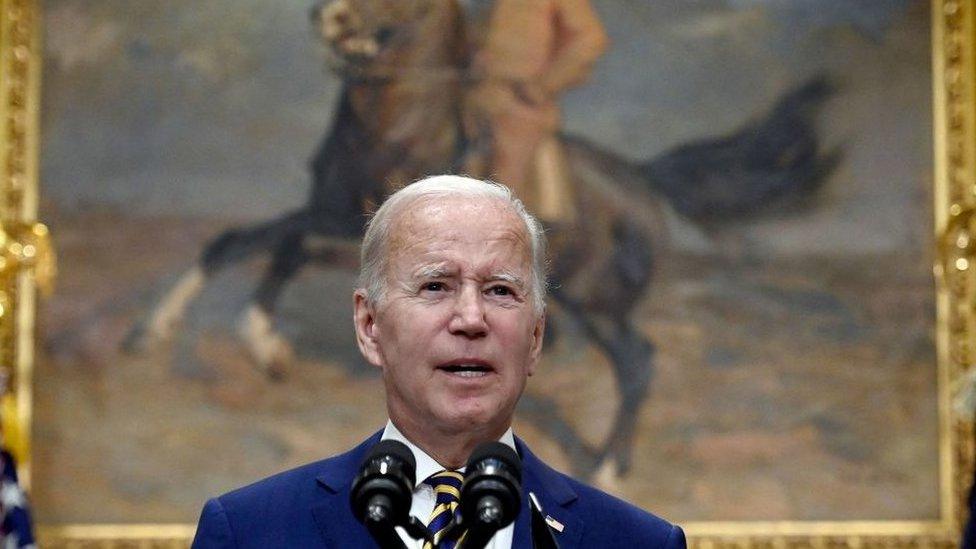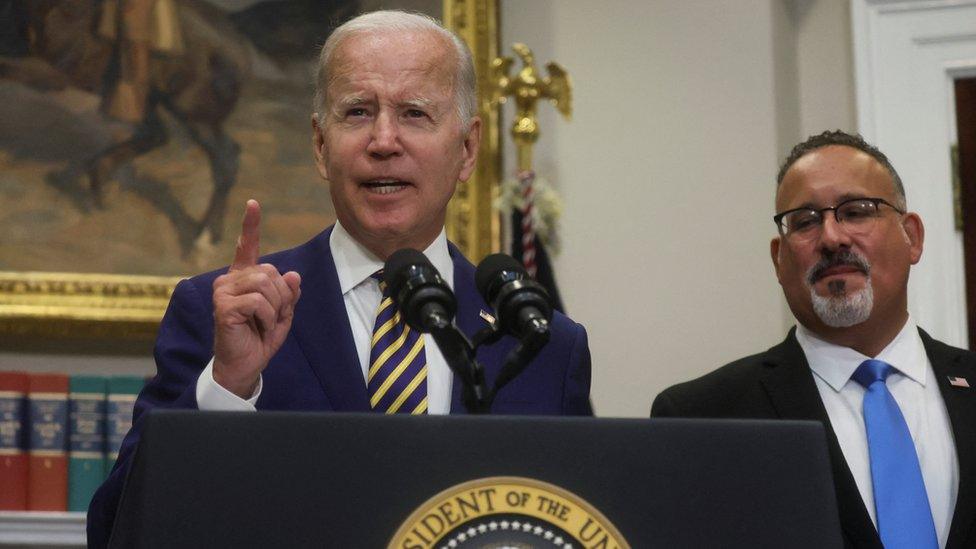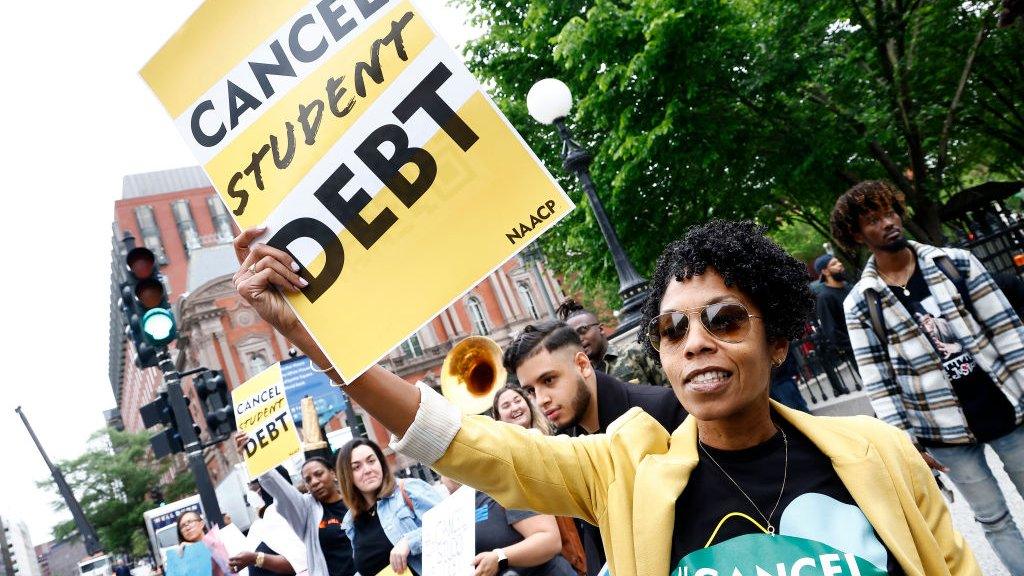Student loan forgiveness: Government stops taking applications after ruling
- Published

Biden's plan cancels up to $10,000 (£8,514) in federal student loans for Americans who earn less than $125,000 each year
The US government has stopped taking applications for President Joe Biden's student loan forgiveness plan after a judge ruled it was illegal.
District Judge Mark Pittman wrote on Thursday that the plan was unlawful because it overstepped the power of Congress.
The judge's ruling blocked debt relief for 26 million Americans who have applied to the programme - 16 million of whom have already been approved.
The White House has filed an appeal.
First introduced in August, Mr Biden's plan pledged to cancel up to $10,000 in federal student loans for Americans who earned less than $125,000 each year.
A notice posted on the government's website said court orders had blocked the scheme and applications were no longer being accepted.`
"At this time, we are not accepting applications. We are seeking to overturn those [court] orders. If you've already applied, we'll hold your application," the notice said.
The judge in Texas, who was appointed by former President Donald Trump, argued the Biden administration side-stepped Congress by green-lighting a $400bn (£340.4bn) programme through a presidential executive order without approval from lawmakers.
He also said the plan would forgive $20,000 of debt for students on Pell Grants, which applies to those in greatest financial need.
The plan has been met by several legal challenges, including a lawsuit by Arizona's attorney general who argued it would harm the state and its economy.
Can student debt forgiveness make a difference?
In Texas, two students who are not eligible for debt relief also filed a lawsuit against the plan, claiming it left out many borrowers who were not given a chance to voice their concerns before the programme came into effect.
Judge Pittman agreed with them in his ruling, writing that the Biden administration did not consult lawmakers before passing the plan.
"In this country, we are not ruled by an all-powerful executive with a pen and a phone," Judge Pittman wrote. "Instead, we are ruled by a Constitution that provides for three distinct and independent branches of government."
White House Press Secretary Karine Jean-Pierre said in a statement that opponents of the student debt relief plan were "backed by extreme Republican special interests".
She added that the US Department of Education would keep the information of applicants on file so their debt can be forgiven quickly "once we prevail in court".
In his ruling, Judge Pittman said the court is not commenting on whether the plan is "good public policy" - but rather if it is legal.
"The Court is not blind to the current political division in our country," he said. "But it is fundamental to the survival of our Republic that the separation of powers as outlined in our Constitution be preserved."
Will student loan relief applications be reopened?
It depends on what happens during the appeals process.
The appeal from the White House will be heard by a three-judge panel of the New Orleans-based 5th US Circuit Court of Appeals, which is dominated by conservative judges who have obstructed previous Biden administration policies.
It could take weeks, and potentially months, for a final ruling to be issued. All applications from borrowers will be put on hold until then.
If the government loses its appeal, the legal challenges could ultimately end up in front of the Supreme Court.
There are further complications, too, because of other legal challenges to the scheme, such as one brought by six states seeking to block the policy. That is currently being considered by an appeals court.
But with student loan payments set to resume in January - following a stay during the Covid-19 pandemic - the government finds itself unable to offer the relief it has promised.
Related topics
- Published24 August 2022

- Published27 February 2023

- Published25 August 2022
